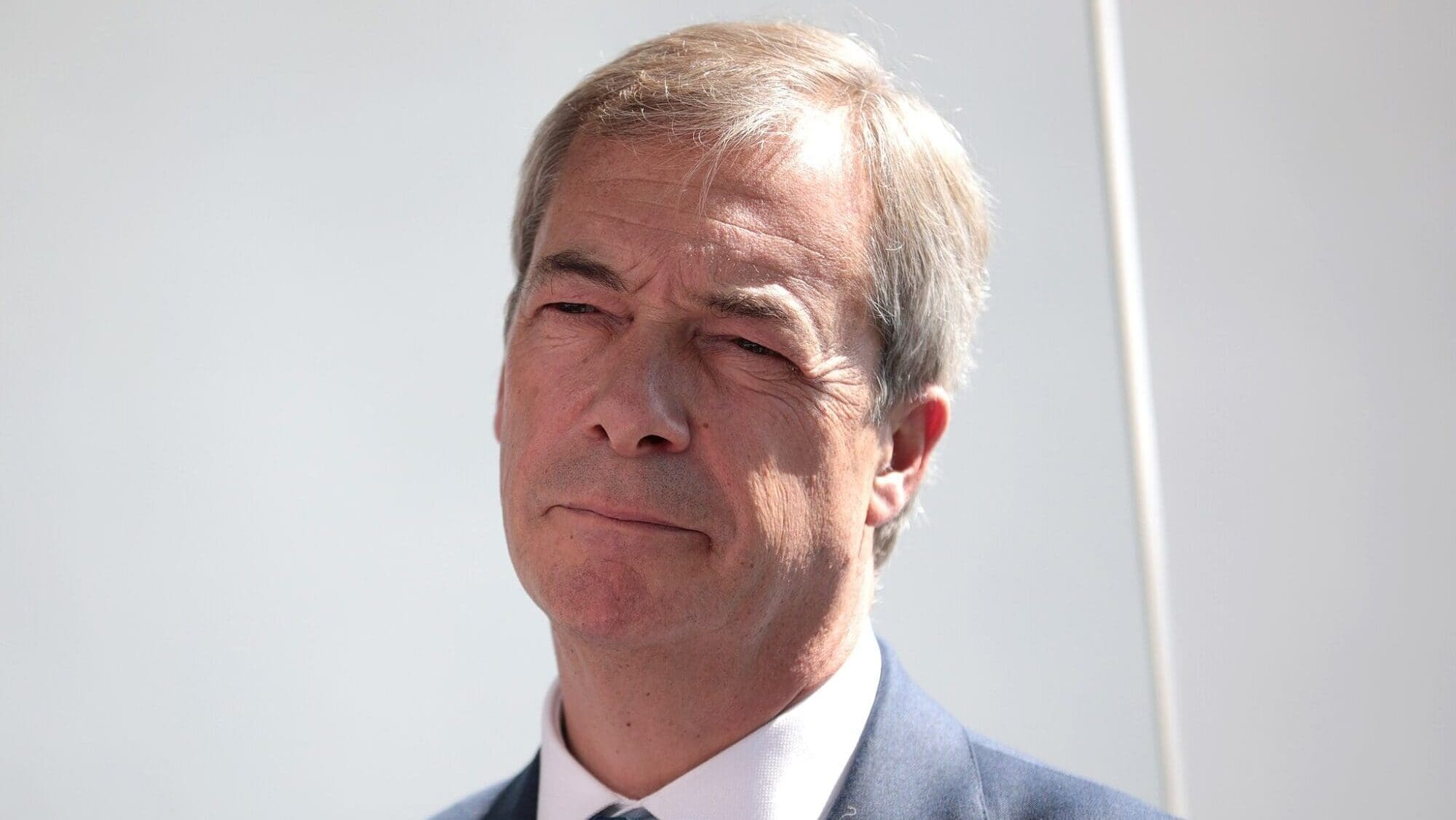
Nigel Farage
Photo: Gage Skidmore from Surprise, AZ, United States of America, CC BY-SA 2.0, via Wikimedia Commons
The British 2024 general election campaign has officially been ‘running’ for almost a fortnight. But with former UKIP leader Nigel Farage announcing on June 3rd that he was taking the reins of Reform UK and that he will now stand for Parliament, it feels like the race is now truly underway.
Not because there is a chance of Reform UK, formerly the Brexit Party, beating Labour in the July 4th national poll. Farage himself said that “the election is [already] over” and Sir Keir Starmer has already won it.
But more important than this is Farage’s pledge to lead the party not just to this election but over the next five years, during which time he intends to lead a political “revolt.” “The real plan,” he told a press conference in London, “is to be the opposition party in the next parliament and the biggest party in the 2029 general election.”
LIVE: Reform UK is making a major announcement https://t.co/PIoR3nv9by
— Reform UK (@reformparty_uk) June 3, 2024
Step one of this plan is to deal an even bigger blow to the Conservatives than it was already expected to suffer. Farage stressed:
There’s every chance we’ll get more votes than the Conservative Party [because] they are on the verge of total collapse and it couldn’t happen, frankly, to nicer people.
You don’t need to just take Farage’s word for it. He prompted furious Tory figures to fill the newspapers with doomsday-esqe quotes. One former cabinet minister told the Financial Times after Farage’s announcement—and, indeed, after new polling suggested the Conservatives will lose well over 200 seats at the election—that “all legions of hell” had been unleashed on Prime Minister Rishi Sunak. And you can almost measure its impact by the fact Sunak’s top team is again considering taking a harder line against the European Convention on Human Rights—anything, really, to calm down the ‘Right’ of his party.
So it’s no wonder that today’s papers spoke of “Rishi’s darkest hour,” or indeed his “worst day on earth”—and, of course, the Conservative Party’s wider Farage-assisted “meltdown.”
MAIL: Rishi’s darkest hour…#TomorrowsPapersToday pic.twitter.com/bkCNmdoNGU
— Neil Henderson (@hendopolis) June 3, 2024
MIRROR: Meltdown #TomorrowsPapersToday pic.twitter.com/vEjn5QNDQI
— Neil Henderson (@hendopolis) June 3, 2024
Not that the news is all rosy for Labour. The “army” of supporters Farage said he didn’t want to let down by not standing, as he originally decided, is largely made up of traditional Labour voters who have come to distrust the party and the people who represent it—not least on the all-important issue of immigration.
Farage made it clear yesterday that “the crucial part of this campaign will be getting those people who are saying now they’ll vote Labour—but I suspect in many cases that’s through disgust—to vote for something they really believe in.”
Tom Harris, who is a former Labour MP and a columnist for The Daily Telegraph, agrees that “Farage’s insistence that Labour, as well as Tory, votes are in his crosshairs, should cause Keir Starmer to start to worry.” He added:
However much Labour has changed under Starmer, it still has precious little to say about Brexit, other than to hint that it will, in government, seek closer ties with the EU. And its outright opposition to Rishi Sunak’s Rwanda scheme barely disguised the absence of any radical alternative to prevent illegal immigration.
Despised though Farage is by much of the Westminster establishment, voters looking for some excitement—or even some interest—in this election, might just start paying attention to him now that he’s a party leader once again. And that could prove very bad news indeed for Labour, perhaps as much as it is for the Conservatives.
However coolly Labour tries to act in the face of Farage’s return, saying “it makes no difference to us,” Farage himself intends to draw votes “fairly evenly” from both the main parties. (It is telling that between 4pm and 7pm on Monday, Reform said it gained a new member every five seconds.) He has restated his belief that, as leader of the Brexit Party, he provided the “gateway drug” for getting working class ‘Red Wall’ towns to switch from Labour to the Tories in 2019—while this time ruling out any cooperation with the party of Sunak.
Pundits already believe Farage has a good chance of becoming MP for the Essex seaside town of Clacton, where he is launching his own Parliamentary campaign today.
